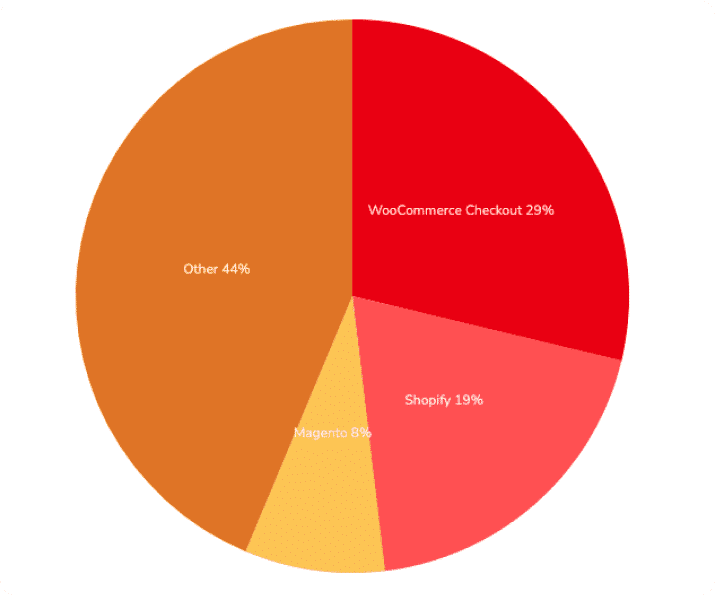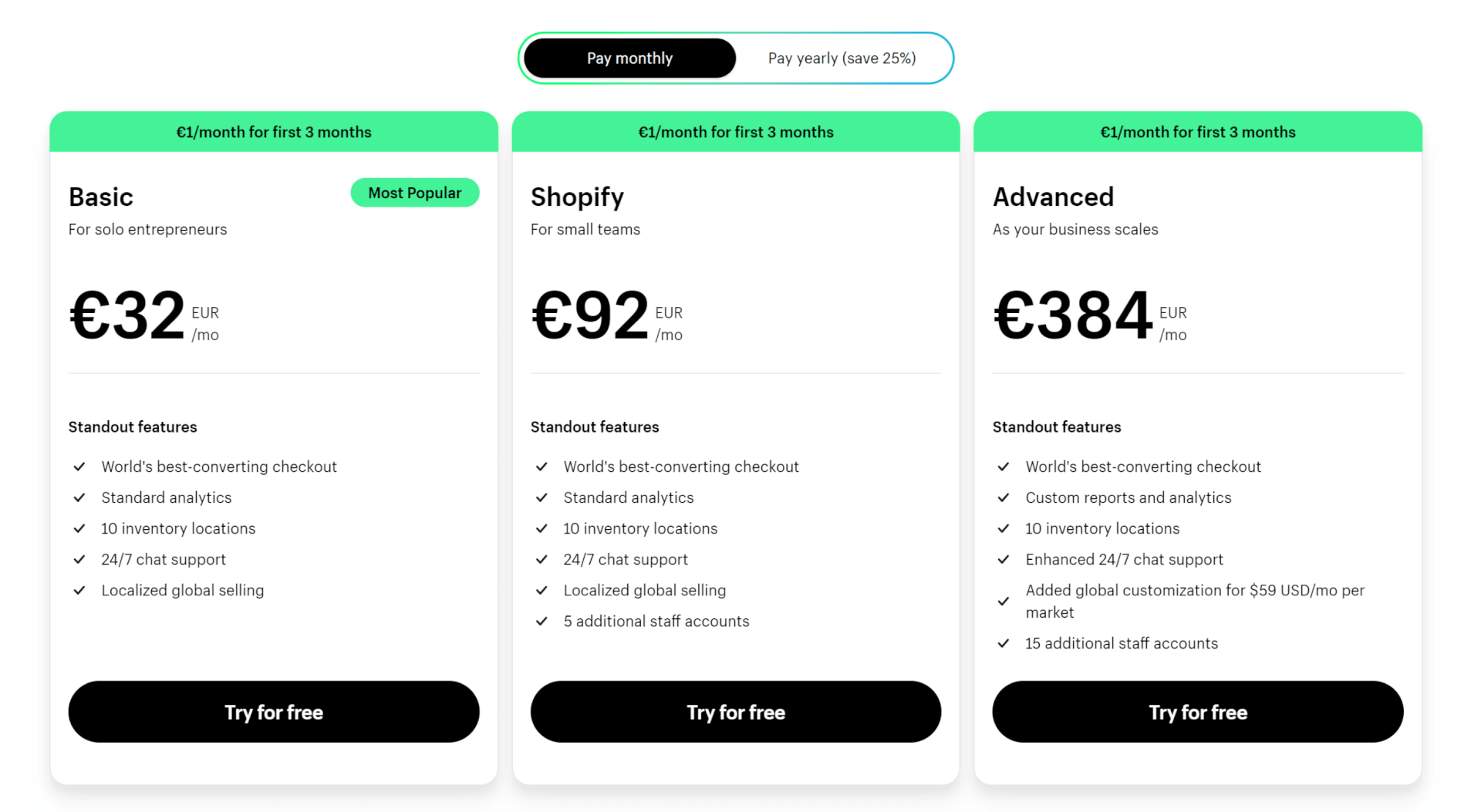AI web app case studies
AI projects we have developed
What is WordPress?
WordPress is the simplest and most popular way to create your own website or blog. In fact, WordPress powers over 42.7% of all websites on the internet. Yes – likely more than one in four websites you visit are built with WordPress.
On a slightly more technical level, WordPress is an open-source content management system licensed under GPLv2, which means that anyone can use or modify the WordPress software for free. This content management system is essentially a tool that allows you to easily manage important aspects of your website, such as content, without needing to know anything about programming.

Photo from the market research “WordPress Market Share Statistics (2011-2024)”
WordPress Advantages
Over 42.7% of all websites use WordPress, including giants like Microsoft.

Microsoft WordPress puslapis
But what about you? Why should you use WordPress?
Regardless of the type of website you want to create, there are numerous reasons to use WordPress. Here are some of the biggest:
- WordPress is free and open-source: One of the biggest advantages of WordPress is that it is free, open-source software. While you’ll need to pay a bit for hosting, you’ll never have to pay Just to use the WordPress software itself, unlike with Shopify. Plus, you can find many open-source plugins and themes to change your site’s look or functionality. Speaking of which…
- Extensive range of plugins and themes: Even if you’re not a developer, you can easily modify your site thanks to WordPress’s vast ecosystem of themes and plugins:
themes primarily change your site’s look, plugins alter your site’s functionality. Plugins can be small, like a contact form, or massive, like e-commerce functionality (WooCommerce). Currently, there are over 50,000 free WordPress plugins and 5,000 free WordPress themes, as well as countless premium options. This means creating an e-commerce site can be more affordable and manageable. - Optimized for SEO: It’s not enough Just to create a site. It’s also important that people find and visit your site via search engines like Google. Using WordPress SEO plugins, such as RankMath, you can easily and conveniently improve your rankings.
- WordPress supports all media types: WordPress does not limit any major media types. Thus, you can use any combination of text, images, and videos on your site. In this competitive market, the creative freedom offered by the WordPress platform is crucial.
- Security and reliability: Security is a major concern for businesses. With many data breaches occurring annually, you want to be confident that your data (and your customers’ data) is protected. As long as plugins are updated and passwords are secure, WordPress is one of the safest CMS platforms. The platform offers several additional features to protect your site, such as logging out inactive users and adding two-step authentication.
WordPress Disadvantages
- Security risk: WordPress sites are widely used and face security threats such as hacking, malware, and other attacks. To minimize this risk, it’s important to regularly update your WordPress site using the latest security trends. Unfortunately, if cybercriminals attack, it can lead to data loss, website downtime, and other serious problems.
- Performance and speed: WordPress sites can load slower than some other sites, especially if you use many plugins or functionalities. This can directly affect user experience and SEO, as slower sites are penalized in search engine rankings. Speed is a direct ranking factor for SEO and user experience. Therefore, our recommendation is never to use too many plugins.
- Maintenance and updates: WordPress requires regular updates and maintenance to remain secure and function smoothly. This can be time-consuming and complex for those not familiar with website maintenance. Updates come regularly, and it can be challenging for beginners to manage them.
What is WooCommerce?
Are you looking to start an e-commerce business? All you need is WooCommerce.
WooCommerce is an e-commerce plugin for WordPress. It simplifies the creation and management of online stores, providing flexibility and essential features like inventory and tax management, secure payments, and shipping integration.
Used by approximately 2.3 million e-commerce stores worldwide, WooCommerce is particularly user-friendly for new e-commerce merchants, offering incredible power, flexibility, and features.

The popularity of e-commerce systems in 2024. Source
WooCommerce Advantages
- Cost: WooCommerce competes with leading e-commerce solutions, but it’s free, allowing any business or entrepreneur to leverage its capabilities without commitments.
- Flexibility: Similar to WordPress, WooCommerce includes numerous features that can be expanded with plugins. Retailers using WooCommerce benefit from modularity, gaining access to thousands of WordPress plugins and themes, along with hundreds of e-commerce-related extensions built specifically for WooCommerce.
- Integration with WordPress: Many assume that WooCommerce’s close ties to WordPress limit its capabilities as an e-commerce platform. In reality, this connection is an advantage. WordPress is highly popular due to its flexibility and functionality, making it a preferred choice for website foundations. It’s fast, secure, and user-friendly. Compatibility between existing WordPress themes and WooCommerce ensures smooth integration.
WooCommerce inherits all the strength and reliability of WordPress, creating a world-class e-commerce experience for merchants and customers. - Scalability: When choosing an e-commerce platform, it’s essential to consider your business’s future growth. WooCommerce excels in this aspect, supporting stores of all sizes, from small businesses with a few products to large enterprises with thousands of products and varying traffic levels. As your WooCommerce site grows, its functionality grows with it.
WooCommerce Disadvantages
- WordPress Dependency: To use WooCommerce, you must use WordPress, which may not be suitable for those who prefer other content management systems.
- Limited Functionality: Some businesses may require advanced features that are not available on the platform, necessitating custom development or additional plugins.
- Security Concerns: WooCommerce shares security risks with the WordPress platform, so regular updates and security measures are essential to protect your site.
What is Shopify?
There are many e-commerce platforms available to merchants, and one of the most popular is Shopify. Shopify is one of the most popular, feature-rich, and fastest-growing e-commerce platforms that exist. More than 2.2 million active e-commerce stores in 175 countries, of various sizes and shapes, trust the Shopify platform. From young new startups to companies of such caliber as Gym Shark, Deliveroo, Huel, and Red Bull, online stores operate thanks to this platform.
Shopify Advantages
Shopify is equipped with all the features you need to grow your business from a startup to a global brand, and we, as an expert e-commerce website development agency, are here to support you at every step, creating, building, and optimizing your Shopify or Shopify Plus e-commerce store.
- Management and Accessibility: The platform allows for easy management of sales, customers, and products without the need for programming knowledge.
- Extensive Range of Add-ons: The Shopify app store contains more than 8,000 applications to enhance the store experience. Here you can find tools for subscription payments, sales promotion, customer service, inventory management, and more.
- Multi-Channel Commerce: Shopify enables you to sell products in multiple locations at once, managing all inventory, orders, and customer management in one place. The platform makes it easy to sell on Facebook, eBay, Amazon, Instagram, and more.
- Flexibility: Shopify’s simple management and straightforward setup can be an excellent tool for testing new products. If a product does not perform well in the market, simply cancel your Shopify subscription.
- Security and Reliability: Shopify hosts all merchants’ stores on its powerful servers, ensuring a 99.999% average uptime. The platform handles about 1 million page views per minute and offers unlimited bandwidth. Security is a priority, so Shopify complies with PCI-DSS Level 1.
Shopify Disadvantages
- Price
While the starter plan is affordable, the options with it are quite limited. It’s best suited if you plan to sell on social networks using a link that directs customers to a relatively simple store. If you want more value-added features, such as the ability to edit themes or have a blog, you will need to purchase the Basic plan or higher.

Shopify pricing
Moreover, although all Shopify plans provide the basic e-commerce features, some important features are only available in certain plans.
- Automation: Marketing automation is available only to users of the Basic plan or higher.
- Analytics: To generate standard analytics reports, you need to have the Shopify plan or higher.
- Shipping Discounts: The higher your plan, the more discounts you receive.
- Transaction Fees
The higher your plan, the lower the fees you have to pay.Every store owner needs to consider their finances and decide if Shopify is the right choice. You can opt for a lower-priced plan in exchange for only essential features, and later, as your business grows, choose higher plans.
However, it’s important to understand that by choosing Shopify, you will always be tied to subscription fees, and if you use them, app fees.
- Limited Design Options
Although Shopify allows customization at various levels, from drag-and-drop to back-end coding, customization options are limited. This is partly because Shopify uses its proprietary programming language (Liquid).
Regardless of the merchant’s programming knowledge level, they are likely to be new to Liquid. This means that to make minor changes to your Shopify site, you will need to spend time learning the platform’s unique programming language.
Everything from custom forms to standard blog functionality requires coding if you are dissatisfied with the standard features.
Additionally, Shopify does not offer a feature that allows customers to send you files with their order details (for example, an image they would like printed on a mug). You must program this feature into your store or pay for an app.
- Shopify Processing Fees
Shopify charges a credit card processing fee. This fee can reach up to 2.9% per transaction.
Shopify relies on a multitude of apps and templates to create a unique e-commerce experience. Unfortunately, many of these tools are paid, and their access cost can be prohibitive. It’s common to see themes priced at $300 and more, and apps that are three times more expensive.
- Difficulties Leaving
While many do not consider leaving Shopify, those who try encounter several difficulties. The first obstacle in leaving Shopify is that there’s no clear path in your Shopify dashboard on how to terminate your account.
To close your account and deactivate your Shopify store, many first have to visit the help center and look for instructions on how to leave the platform. Again, there are no obvious categories dedicated to leaving the platform. However, a simple search with a query like “how to close my account” provides instructions.
Shopify conveniently offers instructions on how to avoid significant data loss or unexpected expenses. You can export CSV files with all important data product details, customer information, orders, gift card codes, discount codes, and even financial information.
Before making the big exit, you also need to cancel any third-party accounts you regularly receive. Check and clear any pending subscriptions related to things like monthly app payments, third-party themes, etc. – make a list and check it twice.
So, leaving Shopify isn’t easy, but with a bit of patience and manual work, you can exit smoothly.
- No Email Hosting
Email marketing plays an important role in the successful operation of your online store. You need to communicate with customers, send product order notifications, inform them about new releases, etc., and a robust email marketing feature is essential for that.
However, Shopify does not provide email hosting, which can cause some difficulties in your email marketing efforts. This means that without using apps, you are limited to using emails with domain names of popular email providers like @Gmail.com.
The problem is that customers are likely to not take you seriously if you don’t have a professional email that indicates your store or business name. Fortunately, there are ways to work around this obstacle.
If you have a domain name that you use with Shopify, you can set up a forwarding email address with most email providers, such as Zoho, G Suite, and MailChimp.
What is Artificial Intelligence (AI)?
Artificial Intelligence (AI) is the simulation of human intelligence processes by machines, especially computer systems. Specific AI functions include natural language processing, image generation, and machine vision.

An award-winning artificial intelligence-generated painting “Théâtre D’opéra Spatial
How Does Artificial Intelligence Work?
With the growing interest in artificial intelligence, businesses have started to advertise how their products use AI. Often, what they call artificial intelligence is simply a component of technology, such as machine learning. AI requires a specialized technical and software foundation to develop and train machine learning algorithms. No programming language is synonymous with AI, but Python, R, Java, C++, and Julia are popular choices among AI developers.
In general, AI systems work by ingesting large sets of labeled training data, analyzing data for correlations and patterns, and using these models to predict future states. For example, a chatbot supplied with text samples can learn to generate realistic text conversations, and an image recognition tool can learn to identify and describe objects in images using millions of examples. New, rapidly advancing generative AI methods can create realistic text, images, music, and more.
Why Is Artificial Intelligence Important?
Artificial intelligence is important because of its potential to transform our lives, work, and leisure. It is effectively used in business to automate tasks previously performed by humans, including customer service, lead generation, fraud detection, and much more.
In many areas, AI can perform tasks much better than humans. Especially when it comes to repetitive, detail-oriented tasks, such as analyzing large sets of legal documents to ensure that relevant fields are correctly filled, artificial intelligence tools often perform tasks quickly and with relatively few errors.
Due to the vast amounts of data it can process, AI can also provide insights into a company’s operations that they may not have known before. Rapidly evolving generative AI tools will be crucial in various fields, from education and marketing to product design.
The progress of artificial intelligence technologies has not only improved efficiency but also opened doors to entirely new business opportunities for companies. Prior to the current wave of AI, it would have been difficult to imagine how computer software could be used to connect passengers with taxis, but Uber has become the most successful company doing Just that (Fortune 500).
Artificial intelligence has become an essential component for many of today’s largest and most successful companies, including Alphabet, Apple, Microsoft, and Meta, where artificial intelligence technologies are used to improve operations and outpace competitors. For example, at Alphabet’s subsidiary Google, artificial intelligence is a fundamental part of its search engine, Waymo manages autonomous vehicles, and Google Brain invented the transformer neural network architecture, which underpins the latest breakthroughs in natural language processing.

Corporate investments in artificial intelligence 2013-2022. Source
Advantages and Disadvantages of Artificial Intelligence
Advantages of Artificial Intelligence
- Excels at detail-oriented tasks: AI has shown to be as good as (if not better than) doctors in diagnosing certain forms of cancer, including breast cancer and melanoma.
- Shortens the time for data-intensive tasks: Artificial intelligence is widely used in data-intensive industries such as banking and finance, pharmaceuticals, and insurance to reduce the time required for analyzing large datasets. For example, financial services regularly use artificial intelligence for processing loan applications and fraud detection.
- Saves labor and increases productivity: One example is the use of warehouse automation, which saw growth during the pandemic and is expected to increase as AI and machine learning are integrated.
- Provides consistent results: Top AI translation tools ensure a high level of consistency and even allow small businesses to reach customers in their native language.
- Can enhance customer satisfaction through personalization: AI can customize content, messages, ads, recommendations, and websites for individual clients.
- Always available: AI programs don’t need to sleep or take breaks; they operate 24/7.
Disadvantages of Artificial Intelligence:
- Expensive.
- Requires deep technical knowledge.
- Limited supply of qualified workers to create AI tools.
- Reflects errors in training data.
- Eliminates jobs for people, increasing unemployment rates
Your project is truly unique!
Tired of endlessly browsing through website examples in search of one that captures your vision? Look no further!
Sign up for a complimentary consultation, share your vision with us, and let us turn it into reality.



